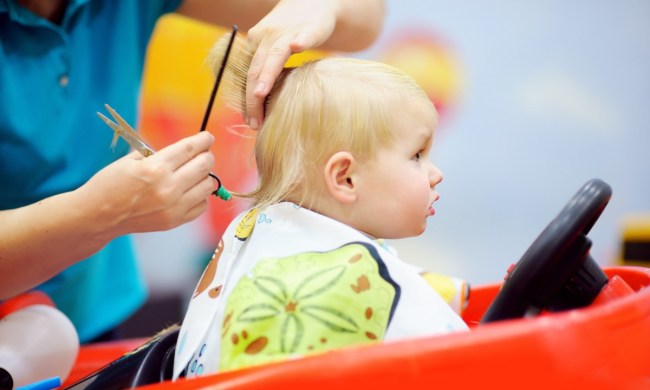Toddlers and teenagers have one thing in common: Mood swings. But while a 2-year-old’s temperament can be fixed with a cookie and a nap, navigating your adolescent’s overall ‘tude is far more complicated. It’s not easy growing up, and today’s teens face a hefty amount of peer pressure, anxiety, and stress. Layer on puberty, fluctuating hormones, and major life transitions, and it is no surprise that youngsters can be moody, melodramatic, and emotional. That doesn’t mean that you have to live with a veritable ticking time bomb for the next few years, though. There are ways you can address your teenage child’s disposition and help them along the bumpy journey.

Why teens are moody
Teenage mood swings are a fact of life. They mark a period of growth and transition — and they happen for various reasons. Some are physical and physiological; others are mental and emotional. They’re all legitimate, though, so it’s important to never downplay or shrug off your child’s seemingly all-over-the-place feelings. Here are the most common causes of moodiness:
- Hormonal shifts and puberty. Yes, your teenager’s hormones are going slightly crazy right now. Puberty mood swings are no joke; estrogen and testosterone levels are fluctuating — and all sorts of chemical reactions create mounting annoyances like acne, voice cracking, and, yes, moodiness and irritability. Additionally, allopregnanolone (THP) is a hormone released during situations of stress; while adults generally feel calmed by this reaction, teens often feel further triggered.
- Brain changes. There are also some major brain changes that take place during adolescence. The physiological changes make it hard for teens to control their impulses and rein in their emotions.
- Asserting independence. Teenagers crave freedom and autonomy. They’re no longer little kids but not quite adults. During this in-between transitional period, they may seek out ways to claim their independence. This might manifest as rebellion or it could result in grumpiness, sadness, irritability, and oversensitivity.
- Figuring out who they are. Adolescents are trying to figure out who they are as individuals. They’re learning how to express themselves creatively. And they’re working toward being their own unique self. This might come across as teenage theatrics, but it’s their way of navigating this uncharted life territory.
Tactics for dealing with a moody teen
Dealing with a teenager’s oscillating mood and ever-changing personality will take patience and grace. There will be times that you’re tempted to roll your eyes right back and slam doors (a taste of their own medicine). But you’ll want to remember that you’re the adult (nay, the parent!), and it’s your role to model good behavior. Here are some additional tips and tactics to keep in mind:
- Keep calm and parent on. It’s frustrating when your teenager replies to a simple “what would you like for dinner?” with an exaggerated sigh and a petulant “whatever.” Before you react, take a deep breath, count to three, and remember that this too shall pass. Escalating an argument won’t help you or your child — so maintain your cool and lead with compassion.
- Communicate. Your teenager might reply in one-word answers, but that doesn’t mean you should stop asking questions. Keep having conversations, continue to communicate, and try to elicit responses. What’s more, if they do come to you with problems, be open and show a willingness to listen — even if it’s not what you were hoping to hear.
- Encourage a healthy lifestyle. Just like you monitor your young child’s diet, activity, and sleep, continue to be vigilant about establishing and maintaining healthy habits for your teenager. They should be eating nutrient-rich meals and snacks, doing adequate exercise, and getting those all-important Zzz’s. This will help improve their bodies, minds, and moods.

When to seek help
Of course, while mood swings are a regular part of growing up, they can be a sign of a larger mental health issue. Frequent and strong emotional responses can be a symptom of depression, anxiety, and bipolar disorder. Oftentimes, these problems emerge during adolescence, so don’t hesitate to reach out to your child’s doctor if you are worried about their mental health and emotional wellbeing. Early intervention via treatment can make a huge difference and immensely help improve your child’s life and outlook.
We all feel moody from time to time; teenagers are no exception. Of course, the biological and mental changes happening can further fuel their strong emotional reactions. As a caregiver, it’s important to react with empathy and give credence to their very real feelings. It won’t be easy — for you or your teen — but together, you can get through this tough transition and come out on the other side feeling stronger, more confident, and more emotionally connected.


